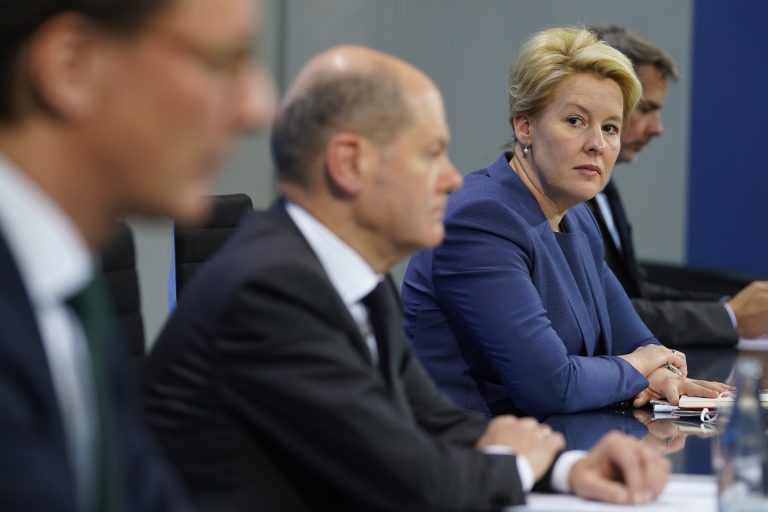Lawmakers in Germany are considering setting up a national vaccine registry that will collect information about whether citizens have been vaccinated or not. The proposal has popped up amidst reports that Berlin is also planning to impose a vaccine mandate on its citizens.
In an interview with Welt am Sonntag, a local newspaper, Barbel Bas, president of the German Bundestag, revealed that she fully supports the idea of a national registry. Bas pointed out that there is very little vaccine data available at present, like the proportion of nurses in the country who have been inoculated against COVID-19. Currently, Berlin uses data from doctors and vaccination centers to determine national and regional vaccination rates.
Other politicians have raised concerns about the registry. Kevin Kuhnert, general secretary for the center-left Social Democratic Party (SPD), dismisses the idea. Even if the registry is limited to data on COVID-19 vaccination, he fears that such a step will open the door for “further access to data.” Health agencies are already overburdened dealing with the pandemic. As such, Kuhnert isn’t sure how they will be able to tackle the additional task of administering the registry.
Friedrich Merz from the Christian Democratic Union (CDU) believes there are many questions about the registry that need to be answered. “We don’t have a national vaccination register yet, we don’t know who is vaccinated and who is not vaccinated.”
He also questioned the proposed vaccine mandate. “The question of the enforcement of such a law is, in my view, at least as important as the discussion about the obligation itself,” he told a local media outlet.
Success
You are now signed up for our newsletter
Success
Check your email to complete sign up
A poll conducted in late November found that almost seven in ten adults agree with forcing all eligible individuals in Germany to be vaccinated against COVID-19. Chancellor Olaf Sholz from the SPD has already announced his support for mandating vaccinations. Sholz has blamed unvaccinated individuals for a surge in COVID-19 infections. He has also refused to rule out imposing punishments for those who refuse to get a shot of a COVID-19 vaccine.
“I will vote for it… My suggestion is that the time by which everyone has been vaccinated is not too far away, so my suggestion: early February or early March… What we need is a legislative procedure in which every member of parliament votes according to his conscience on a general vaccination obligation,” he said to local paper Bild.
Wolfgang Kubicki, Vice President of the Bundestag, has strongly opposed mandatory vaccination, likening it to the Reign of Terror during the French Revolution. In an interview with a local media outlet, Kubicki said that he is “appalled by the Jacobin behavior” of so many people in the country who seem to be seeking “revenge and retribution” against unvaccinated individuals.
He insisted that people who have refused vaccinations are being made scapegoats for the increasing infection caseload, something Kubicki says is “complete nonsense.”
Meanwhile, German health minister Karl Lauterbach warned about a potential “massive fifth wave” of COVID-19 infections sweeping through the country due to the new Omicron variant. At a press conference in Hanover on Dec. 17, Lauterbach said that even if the new variant is “milder,” it won’t make “no difference.”
“It would perhaps keep the number of deaths low for two or three weeks. But then the growth of cases would eat up this advantage,” the minister said. Insisting that the situation is still being “underestimated,” Lauterbach called for preparing for a challenge that Germany has “not yet had in this form.”


















